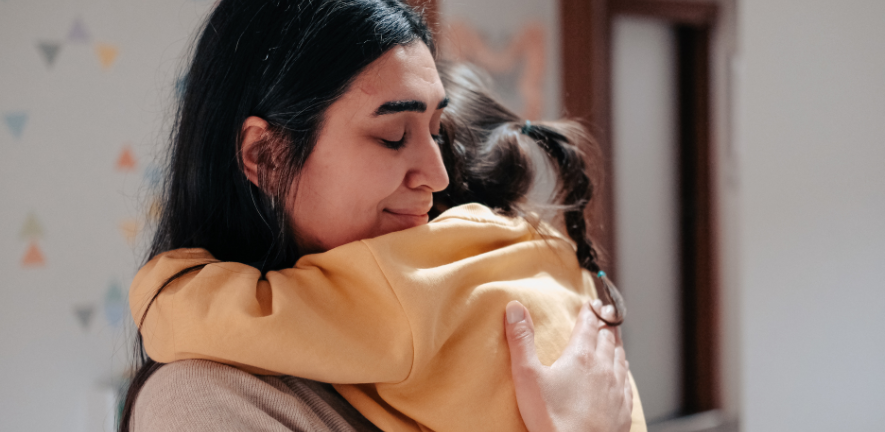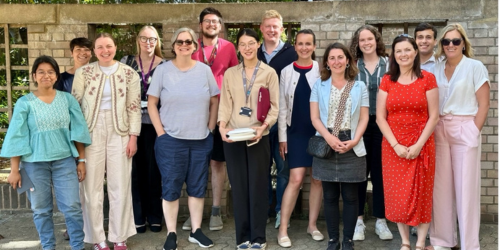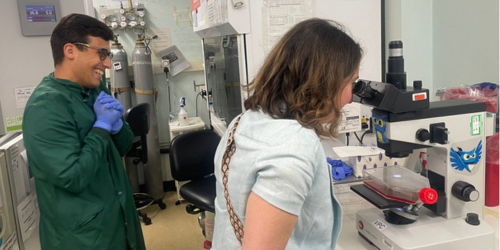
Submitted by Livia Harriman on Wed, 09/07/2025 - 11:04
On Friday, 27th June 2025, a unique and powerful gathering took place in Cambridge. For the first time, mothers, researchers, and a young adult patient—who had long supported each other online—came together in person to focus on a shared mission: improving the understanding and treatment of anaplastic large cell lymphoma (ALCL).
This emotionally charged and scientifically rich meeting marked a turning point for the global ALCL community, creating a vital space for lived experience to shape future research and clinical care.
What Is ALCL?
Anaplastic Large Cell Lymphoma (ALCL) is a rare and aggressive form of cancer that affects the immune system, specifically involving T-cells. It can affect lymph nodes, skin, and other organs. While chemotherapy remains the standard treatment, emerging therapies such as immunotherapy and targeted drugs offer hope, especially for those with resistant or relapsed disease.
Due to its rarity, ALCL often falls under the radar of large pharmaceutical companies and major clinical trials, making patient-led advocacy and research collaborations more critical than ever.
The ‘Mumcologists’ Leading the Way
At the heart of this movement are the “mumcologists”—a term affectionately used to describe the mothers who have become experts in their children’s care. These women, through necessity and determination, have amassed deep knowledge of ALCL, often guiding clinical decision-making alongside medical teams.
Their stories, shared during the meeting, highlighted both the triumphs and frustrations of dealing with a rare diagnosis: delayed recognition, limited treatment options, and the emotional strain of navigating uncertain territory. The group called on oncologists to listen more closely to caregivers and patients, and to develop more effective pathways for the diagnosis and treatment of rare cancers.
Amplifying Young Adult Voices
One of the most powerful contributions came from a young adult patient who reminded everyone of the unique needs of those aged 16–25—a group frequently underserved by either paediatric or adult oncology systems. Their message was clear: future research and support services must include and reflect the voices of young people living with ALCL.
Insights from the Lab
Researchers from the Turner Lab at the Cancer Research UK Cambridge Centre (Childhood, Teenager and Young Adult Cancers Programme) presented recent progress in understanding the molecular underpinnings of ALCL. Their update reaffirmed the value of close collaboration between scientists and those affected by the disease.
For the mums and patient attendees, this was more than a research update—it was a sign that their voices are helping to shape the scientific agenda.
Charting the Way Forward
The day ended with clear priorities and shared goals:
-
Data & Sample Sharing: Improving the ability to share clinical data and tissue samples internationally to accelerate research.
-
Advocacy & Funding: Increasing efforts to secure dedicated funding for ALCL research and access to cutting-edge treatments.
-
Awareness & Education: Empowering both the medical community and families with better tools and knowledge about rare cancers.
-
Global Network Building: Strengthening connections across countries to ensure no family or researcher stands alone in the fight against ALCL.
A Shared Mission
This meeting, generously supported by the University of Cambridge’s Department of Pathology, the School of Biological Sciences, the Children and Young People’s Cancer Group (CCLG), and the Cancer Research UK Cambridge Centre, marked a vital step forward.
The message from everyone involved was clear: ALCL may be rare, but the determination to improve outcomes is powerful and growing. Together—families, patients, researchers, and clinicians—are rewriting what’s possible for rare cancer care.



